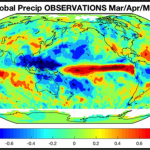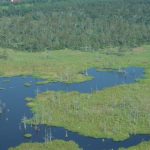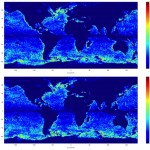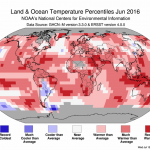
It is difficult to estimate how detrimental fake news has been to the world, but it is almost undeniable that it is playing an influential role. Fake news is not a fresh invention, but the internet has made it more prevalent and accessible than ever before. Controversial issues like climate change are frequently the battleground for the truth.

Climate models are probably the most fundamental tool advancing the field today, and to me, until recently, the models seemed like some large mythic machine behind locked doors in some secret facility in the desert. My research internship succeeded at demystifying them. They’re essentially mathematical representations of the climate system courtesy of codes run on powerful computers.

Five weeks prior to the storm, I arrived at our field site in the remote northern corridor of the Guatemalan jungle, excited to embark on a journey of piecing together the story of ancient Mayan life. Full of energy and excitement, I unloaded box after box of scientific equipment from our helicopter and stumbled down the muddy, root-strewn trail to the site’s wooden-framed laboratory. Tasked with studying the ancient climate at the site, our team began a six-week process of excavating noteworthy archaeological areas and drilling sediment cores for soil analyses.

It is crucial for the general public to understand that climate science is not a distant and mysterious subject, but something that directly impacts their lives.

The effects of anthropogenic climate change – specifically sea-level rise due to ice melt and thermal expansion – are likely to threaten already vulnerable coastal wetlands in Louisiana according to a new study published in Nature Communications on Tuesday. The study was conducted by Climate and Society 2010 alum Krista L. Jankowski and colleagues at… read more

Mesoscale eddies, known as the weather of the ocean, are masses of spinning water. The radical scale of an eddy ranges from 15 miles to more than 150 miles wide, with a lifetime of 10–100 days. Eddies are present almost everywhere in the world ocean, transporting heat, salt- and freshwater, dissolved carbon dioxide, and other tracers all around the globe.

Each month in 2016 continues to break global temperature records. As the impacts of climate change become clearer, public health officials, scientists, and policy makers around the world are scrambling to keep up with the impacts of a warming planet. The health hazards associated with changing weather and climate patterns are significant and varied.

Data is such an elemental component of any science, and atmospheric and climate science are certainly not exceptions. Data allows us to test hypotheses, to document the world around us, and quantify observations. Data is what allows us to say the planet is unequivocally warming, or that it rained 1 inch in Central Park last night or that yes, a certain percentage of U.S. voters actually do support Donald Trump.

The growing body of climate and conflict literature just got a major new study courtesy of C+S alum Colin Kelley (C+S ’08). The research, published on Monday in the Proceedings of the National Academy of Sciences, looks how climate change influenced the ongoing Syrian conflict that’s given rise to the Islamic State.












